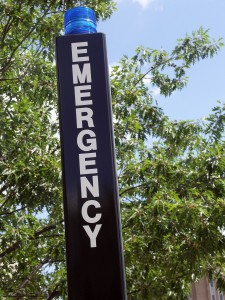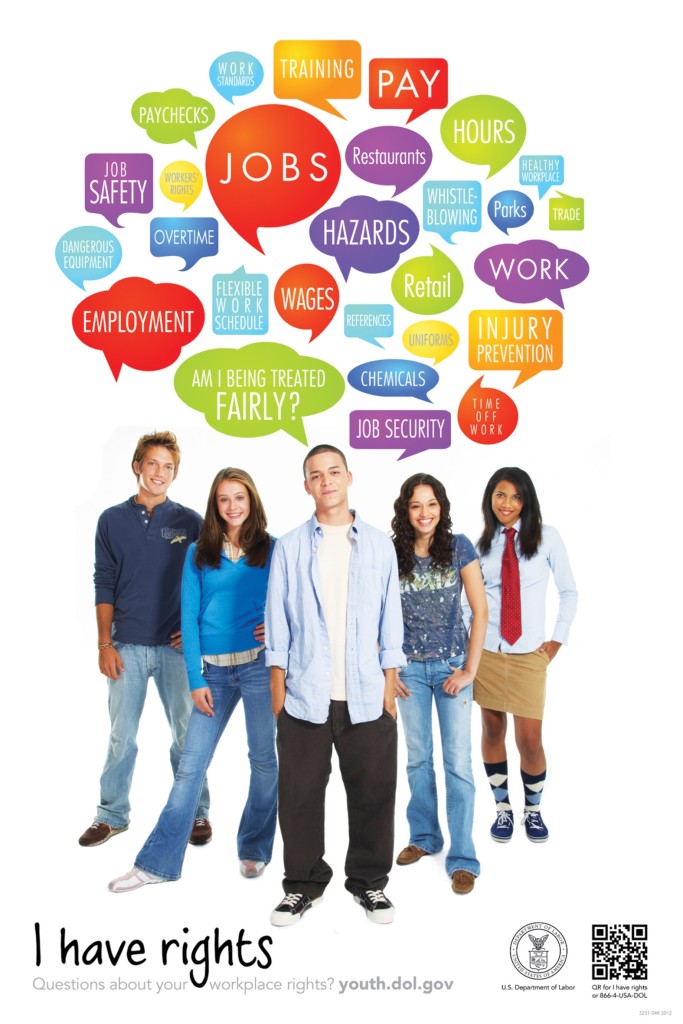 Georgia College warns students that a violent crime occurs every 22 seconds and a rape occurs every 6 minutes in the U.S., according to FBI, NHTSA and BBB reports. As such, Georgia College urges student-residents to practice personal safety measures to help keep the campus safe and reduce the chance of becoming a victim.
Georgia College warns students that a violent crime occurs every 22 seconds and a rape occurs every 6 minutes in the U.S., according to FBI, NHTSA and BBB reports. As such, Georgia College urges student-residents to practice personal safety measures to help keep the campus safe and reduce the chance of becoming a victim.
Most of these safety tips apply to all college campus residents, as well as apartment tenants:
BE A LITTLE SUSPICIOUS!
- You may know your neighbors in your residence hall or apartment building are fellow students-but what else do you know about them? At best, most of the people in your building will be acquaintances. Until you know them well enough to be friends, don’t take chances.
- Don’t lend your keys, student ID, driver’s license, or other property to anyone.
KNOW YOUR SURROUNDINGS!
- Know the locations of Emergency Call Boxes.
- Walk confidently, directly, at a steady pace.
- Walk on the side of the street facing traffic.
- Stay in well lighted areas as much as possible.
- Never work alone in an office or class-room on campus at night. Arrange a buddy system with someone you work or study with.
- While sunbathing stay within designated areas near residence
halls.
- Check your surroundings and car interior before opening your car door.
- Have your car or residence key in hand.
- Stay alert. Send the message you’re calm, confident, and know where you’re going.
- Trust your instincts – if someone makes you uncomfortable, walk to a well-populated area.
- Don’t let unauthorized people “tailgate” through card access controlled doors.
- Try to use ATMs only during daylight hours – have your card ready and don’t approach if you feel uneasy about the people nearby.
- Share your network phone numbers with class/activities schedule with parents and close friends.
- Always be alert and notify the [campus police] of any unusual and suspicious activity.
- Walk with a friend at night.
- Never prop doors open; do not allow strangers to enter the premises.
- Always lock your door, even if you intend to return shortly or are just going down the hall.
SAFETY IN YOUR CAR
- When leaving your vehicle, be certain your your doors are locked and windows are completely rolled up.
- Check the back seat before you get in.
- Have your keys in hand so you don’t have to linger before getting in, especially at night.
- Keep packages and valuables out of sight in your vehicle either under a seat, in the glove box, or in the trunk.
- Park in well lit areas near other vehicles or in high pedestrian and vehicle traffic areas.
LOCK UP!
- Lock your residence hall or apartment door, even when you’re home. Lock your car. Lock your bike. Lock your purse in a drawer in your office.
- Lock your door when you leave, even if you’re only leaving “just for a minute.” It only takes a thief 10 seconds to take something from your room or office.
- Lock your door when you sleep, even in a residence hall.
- Don’t hide the key to your room or apartment outside. Thieves are more experienced than you at inventing–and discovering– such hiding places.
- Lock your bike to an immovable object with a maximum-security bike lock.
DON’T LEAVE YOUR PROPERTY UNATTENDED
- In the library, dining hall, classroom, restroom, or any campus facility. Theft of backpacks and textbooks is common-the resale value of books makes them attractive targets for petty thieves. If you’re leaving for a minute, take your things with you.
- Don’t leave notes on your door announcing that you aren’t home.
- Don’t leave things in the laundry room.
- Never leave valuables unattended.
Read the complete list of Safety Tips here.
Know Your Rights
College students have a right to feel safe and secure while on premises. By law, colleges and universities are required to protect all students legally on the premises from any foreseeable harm.
We Fight for Victims of Security Negligence in Georgia…Contact us Now for a Free Consultation.
 The Murray Law Firm has recovered millions of dollars for victims of unsafe properties in Georgia, and recently obtained a $29.25 million dollar verdict for one of our Clients in Fulton County State Court.
The Murray Law Firm has recovered millions of dollars for victims of unsafe properties in Georgia, and recently obtained a $29.25 million dollar verdict for one of our Clients in Fulton County State Court.
We represent our Clients on a contingency agreement, which generally means that no fees or payments are owed until and unless we recover. Anyone seeking further information or legal representation is encouraged to contact us at 888.842.1616. Consultations are free and confidential.

Choosing the Right Attorney
Selecting the right attorney for you or your family is highly important. You must feel confident that the attorney you hire has a complete understanding of the law applicable to your particular case, and has successful experience in handling such cases.
Important: Do not hire a lawyer who has violated the Rules of Professional Conduct!!!
You should not hire an attorney who calls you or visits you unsolicited, or anyone that contacts you directly to offer legal services. This activity is strictly prohibited by Rule 7.3 of the American Bar Association (ABA) Model Rules of Professional Conduct, which states as follows:
 A LAWYER “SHALL NOT” CONTACT A PROSPECTIVE CLIENT THROUGH A “LIVE TELEPHONE” OR AN “IN-PERSON” VISIT.
A LAWYER “SHALL NOT” CONTACT A PROSPECTIVE CLIENT THROUGH A “LIVE TELEPHONE” OR AN “IN-PERSON” VISIT.
– RULE 7.3, ABA MODEL RULES OF PROFESSIONAL CONDUCT.
If an attorney, or someone acting on behalf of an attorney, contacts you in this manner, that attorney is in violation of this Rule. This unethical and unprofessional activity on the part of the lawyer is good sign that you should stay away. It is imperative that you are represented by an attorney who is capable of advocating for you within the confines of the law, and an attorney who fails to abide by the Rules of Professional Conduct is probably not the best fit. In fact, any such attorney should be immediately reported to the local State Bar Association. If you have been contacted in such an unsolicited manner, contact us and we’ll assist you in filing a report.

Contingency Fees Disclaimer: “Contingent attorneys’ fees refers only to those fees charged by attorneys for their legal services. Such fees are not permitted in all types of cases. Court costs and other additional expenses of legal action usually must be paid by the client.”
 According to Pool Safely, a national campaign dedicated to reducing child drownings in swimming pools and spas, “drowning is the leading cause of unintentional death in children ages 1-4.”
According to Pool Safely, a national campaign dedicated to reducing child drownings in swimming pools and spas, “drowning is the leading cause of unintentional death in children ages 1-4.” Georgia Legal Report
Georgia Legal Report


 All employees have a right to be safe and healthy at work, regardless of age. Sadly, the U.S. Occupational Safety and Health Administration (OSHA) warns, “Workers under the age of 25-years-old are twice as likely to end up in the emergency room than those over 25-and older.”
All employees have a right to be safe and healthy at work, regardless of age. Sadly, the U.S. Occupational Safety and Health Administration (OSHA) warns, “Workers under the age of 25-years-old are twice as likely to end up in the emergency room than those over 25-and older.” The Murray Law Firm has recovered millions of dollars for victims of unsafe workplaces in Georgia, and recently obtained a $29.25 million dollar verdict for one of our Clients in Fulton County State Court.
The Murray Law Firm has recovered millions of dollars for victims of unsafe workplaces in Georgia, and recently obtained a $29.25 million dollar verdict for one of our Clients in Fulton County State Court.


 Georgia College warns students that a violent crime occurs every 22 seconds and a rape occurs every 6 minutes in the U.S., according to FBI, NHTSA and BBB reports. As such, Georgia College urges student-residents to practice personal safety measures to help keep the campus safe and reduce the chance of becoming a victim.
Georgia College warns students that a violent crime occurs every 22 seconds and a rape occurs every 6 minutes in the U.S., according to FBI, NHTSA and BBB reports. As such, Georgia College urges student-residents to practice personal safety measures to help keep the campus safe and reduce the chance of becoming a victim.